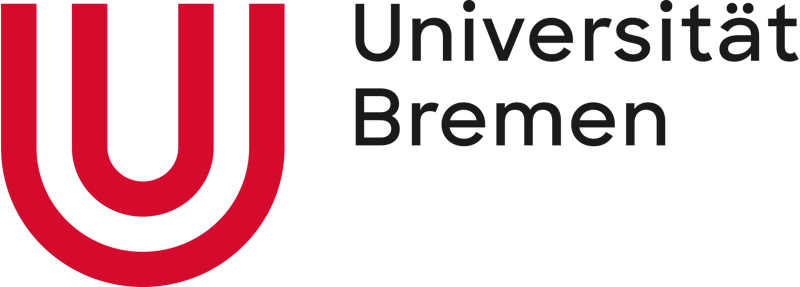Access to the labor market for migrants depends on their legal status. Those who have no prospects of remaining enter the informal labor market. Without social security, but as part of the global labor force. It is time to recognize their reality, as ethnographic research in the field shows.
In 2015, the German government loosened existing restrictions for asylum seekers to enter the German labor market by reducing the waiting time from fifteen months to three, and improving integration support. Labor market researchers expect that agency employment - in which a third-party agency employs a worker, and places them with a client firm - will provide a steppingstone into regular employment, as refugees learn the German language and better integrate into their jobs.
But what kinds of jobs do asylum seekers effectively find? Representative surveys and official statistics on the employment status of refugees are generally incomplete. In German labor market statistics, asylum seekers and refugees – as a sub-category of migrants, defined by citizenship – are not identified as a separate group. In consequence, what we know is dependent on surveys. Existing evidence shows that migrants from countries affected by war and economic crisis are usually employed in sectors with lower skill requirements. Other studies suggest that asylum seekers and refugees are often employed in the informal sector or unregistered work relations.
The European Statistics Office considers the informal economy as comprising informal employment without secure contracts, worker benefits, or social protection, both inside and outside informal enterprises. The former involves employers, employees, own-account operators, and unpaid family workers in informal enterprises; while the latter comprises domestic workers, casual or day laborers, temporary or part-time workers, industrial outworkers (including home-workers), and unregistered or undeclared workers.
To learn more about the role refugees play in the country’s formal and informal labor force, I tackled the question of their employment options through ethnographic research, observing what kinds of jobs were taken up by asylum seekers from Nigeria and Ghana, and whether and how they remained in those jobs.
Immigration controls collide and interact with employment regulations
Access to social rights and labor market participation depends on each asylum seeker’s actual legal status: for instance, if they’re recognized as refugee, granted subsidiary protection status, or registered as asylum seeker or as tolerated refugee. In Germany, asylum seekers and refugees who have entered the country through either the national state's resettlement programs or the humanitarian reception programs of its federal states are not subject to labor market restrictions. They are also offered access to integration workshops and skill-enhancing programs offered by job centers.
Instead, asylum seekers whose applications are refused or withdrawn are removed from the formal employment route and required to depart from Germany through voluntary or compulsory means – the latter being deportation. In consequence, individual asylum seekers who opt not to leave Germany, but to remain, face the choice of concealing their whereabouts and can only join the unregulated workforce.
Several studies highlight the wide variety of 'flexible labor market practices' that take place via informal employment, including subcontracting, moonlighting, and the proliferation of short-term, seasonal, and part-time work regimes. In my study, I sought to elucidate what concrete options are left for those asylum seekers in the informal labor market in Germany.
What jobs are available for asylum seekers 'without prospects to remain'?
I conducted ethnographic studies in three main locations in the region of North Rhine-Westphalia: day-job markets and scrapyards (informal), and a temporary agency-client workplace (formal).
In the day-job market, asylum seekers are recruited to load export containers headed to West-Africa. They often find these jobs through social connections (such as ethnic and community ties). Scrapyard jobs involve the decoupling of automobiles and their parts. The temporary agency-client, in turn, offered positions mostly at a logistics firm.
The container export and scrapyard businesses observed are operated mainly by people with migration or refugee background. This may explain why they are open to offer jobs to Nigerian and Ghanaian asylum seekers whose asylum application has been rejected and work permit revoked. These migrant entrepreneurs employ informal workers also through their social connections, such as friends from the same country or other migrant entrepreneurs. However, jobs are most frequently handed out only verbally and without any written contract.
Social ties therefore prove to be essential resources for asylum seekers 'without prospects to remain' and the key to finding jobs in the German informal sector. These social connections often operated as quick and efficient sources to find job opportunities in the informal labor market. It was quite recurrent, in fact, that, in agreement with migrant employers, asylum workers already in the informal day-market and scrapyard jobs arrange work slots for new arrivals or for their acquaintances.
During fieldwork, I also observed a positive perception from West-African migrant entrepreneurs towards Nigerian asylum workers. These employers frequently recruit Nigerian asylum workers for the day-market and scrapyard jobs, especially when compared to their counterparts. Some of my Nigerian research respondents even shared that having a good reputation was part of their strategy finalized to develop social ties, which in turn becomes useful to find jobs in the local informal labor market.
Given that no social security nor health insurance agreement are provided - nor are they possible - between the informal employers and asylum workers, what workers are most interested in is not staying idle regardless of their negative asylum outcome. To them, informal jobs emerge as their only opportunity to learn more about industrial practices and skills, such as learning how to drive the forklift or managing their work time while delivering the needed result; and in doing so, they can turn around their labor market trajectory to improve their residence status and livelihood.
Policy measures to address job insecurity and informality
In Germany, immigration legislation, administrative hurdles, and employment regulations interact in ways that can force asylum seekers into informal employment, either intermittently or for the longer term. This phenomenon is evident in the cases of Nigerians and Ghanaians drifting from the formal employment route (such as temporary agency work) to the informal employment space (day-market and scrapyard jobs) as their asylum status changes.
However, asylum seekers and refugees cannot be considered as a mere 'unit of labor' with no autonomy and social connections, who 'unilaterally' decide to sell their labor power in the market space. The reality of asylum seekers 'with no prospects to remain' as part of the informal market demands recognition, first, of their concrete needs, hurdles and strategies despite of their informal job status; and second, of their role in dynamic social and economic process.
Asylum seekers are members of the global labor force as any other worker facing the repercussions of more informal, insecure, and flexible labor activities. Adequate social protection and tailored labor integration services are needed to improve their living and working conditions, and eventually facilitate and regularize their long-term access to the labor market. These measures include support for employers in training and employing these asylum seekers and developing labor protection pathways for those asylum seekers who are categorized as 'without prospects to remain'.
A longer-term perspective is needed for these low-skilled asylum seekers with a view to achieving employability, a path that should combine language and skills training. In areas where jobs are readily available, asylum seekers will integrate easier and faster. Both migrant entrepreneurs and asylum workers respondents have shared that they did not intentionally seek this situation of informality, yet informal training and support are still needed and therefore organised among themselves without the government’s support. Migrant entrepreneurs have their scrapyards and export businesses duly registered and contribute to local economic development, and are in turn ready to formally employ these asylum workers 'without prospects to remain' and help them turn their status towards 'with prospects to stay', if the government and its regulations would allow them to do so.
This article also appeared in German at sozialpolitikblog.
The Blog is led by DIFIS, the German Institute for Interdisciplinary Social Policy Research.
Header photo by Nik - Unsplash








